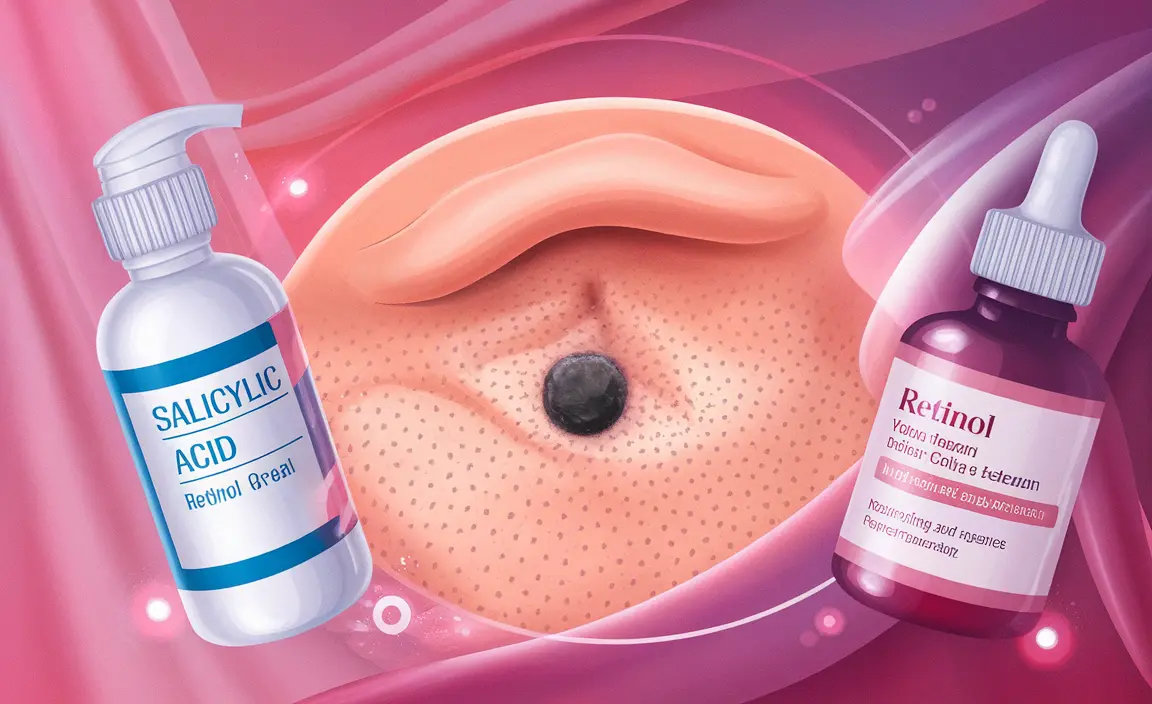Dealing with stubborn blackheads can be frustrating, but understanding the right treatment approaches and prevention strategies can help you achieve clearer, healthier skin. This comprehensive guide will explore proven methods for blackhead removal and prevention, combining both at-home care and professional options.
Understanding Blackheads and Their Causes
Blackheads form when pores become clogged with excess oil, dead skin cells, and bacteria. Unlike whiteheads, blackheads are open at the surface, causing the debris to oxidize and turn dark. This understanding is crucial for effective treatment and prevention.
Over-the-Counter Solutions for Blackhead Treatment
Several effective over-the-counter products can help combat blackheads:
Salicylic Acid Products
This beta-hydroxy acid (BHA) penetrates deep into pores, dissolving excess oil and dead skin cells. Look for cleansers or spot treatments containing 0.5-2% salicylic acid for optimal results.
Benzoyl Peroxide
While primarily known for treating acne, benzoyl peroxide can help prevent blackheads by killing bacteria and reducing oil production. Start with a lower concentration (2.5%) to minimize irritation.
Retinol Products
Over-the-counter retinol products can help increase cell turnover and prevent pore blockages. Begin using these products gradually, as they can cause initial skin sensitivity.
Professional Treatment Options
For persistent or severe cases, several professional treatments have proven effective:
- Chemical peels
- Professional extractions
- Microdermabrasion
- LED light therapy
- Prescription-strength retinoids
Proper Skincare Routine for Prevention
Maintaining a consistent skincare routine is crucial for preventing new blackheads from forming:
Daily Cleansing
Wash your face twice daily with a gentle, non-comedogenic cleanser. Avoid harsh soaps that can strip your skin and trigger excess oil production.
Regular Exfoliation
Incorporate gentle exfoliation 2-3 times per week. Choose between chemical exfoliants (like glycolic or salicylic acid) or gentle physical scrubs, but never over-exfoliate.
Proper Moisturizing
Use a lightweight, non-comedogenic moisturizer to maintain skin balance. Even oily skin needs hydration to prevent excess oil production.
Safe Extraction Methods
While professional extraction is safest, if you choose to remove blackheads at home, follow these precautions:
- Cleanse skin thoroughly
- Steam face for 5-10 minutes to open pores
- Use clean extraction tools only
- Apply toner afterward to close pores
- Never force extraction if resistance is met
Frequently Asked Questions
What are the most effective over-the-counter products for getting rid of blackheads?
The most effective over-the-counter products contain salicylic acid, benzoyl peroxide, or retinol. These ingredients help dissolve excess oil, remove dead skin cells, and promote cell turnover to prevent and treat blackheads.
How can I prevent blackheads from forming again after removal?
Maintain a consistent skincare routine with regular cleansing, gentle exfoliation, and non-comedogenic products. Use oil-free sunscreen daily and avoid touching your face frequently to prevent new blackheads from forming.
Is it safe to squeeze or pop blackheads at home, and what are the risks?
While it's safer to have blackheads professionally extracted, if doing it at home, use proper tools and techniques. Risks include scarring, infection, and spreading bacteria that can cause more breakouts. Never force extraction or use fingernails.
What professional treatments are available for stubborn or deep blackheads?
Professional treatments include chemical peels, manual extraction by an esthetician, microdermabrasion, and prescription retinoids. These treatments can provide deeper cleaning and more effective results than at-home methods.
How often should I exfoliate and cleanse my skin to reduce blackheads without causing irritation?
Cleanse twice daily and exfoliate 2-3 times per week. Over-exfoliation can irritate skin and increase oil production, so start gradually and adjust based on your skin's response. Those with sensitive skin may need to exfoliate less frequently.




